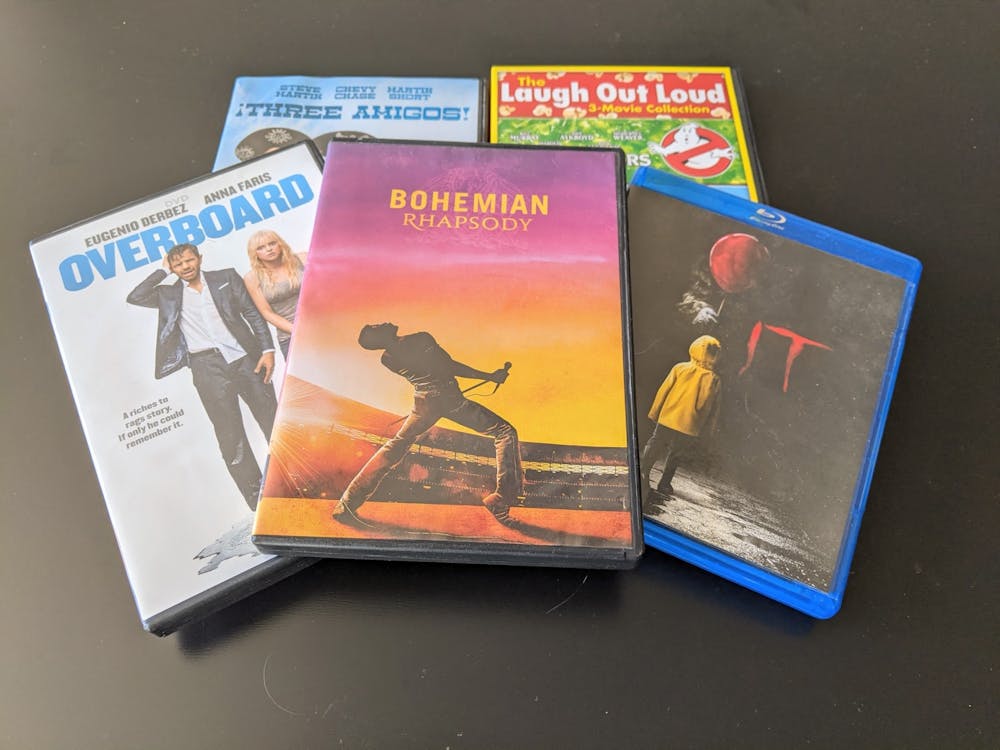Recently ‘80s movies such as “Ferris Bueller’s Day Off,” “Ghostbusters,” “Top Gun” and “Back to the Future” have become increasingly popular once again.
According to Melissa Blair, associate professor of history, this is not a coincidence — widespread nostalgia can be seen in cycles throughout the history of pop culture.
“Popular culture tends to cycle through with this nostalgia as the people who grew up in the generation become adults,” Blair said.
Blair said many ‘80s toys have started reappearing on supermarket shelves as well, proving the nostalgia wave reaches many aspects of popular culture.
“There’s always the contemporary and the nostalgia coexisting in pop culture,” Blair said. “There are shows like Stranger Things and The Goldbergs, but that’s not the only thing people are watching.”
As for the reasoning behind the younger generation’s infatuation with the culture of the 1980s, she said that “it’s close enough to be recognizable but still different at the same time.”
Blair said she wondered if the difference in communication and technology that can be seen in the ‘80s, where the phones were attached to the wall and the computers were reserved for working purposes, is appealing to a generation of young people who have grown up with cell phones and the internet.
She observed that there seems to be a mix of ‘80s and ‘90s nostalgia happening at the same time in 2020, with 1980s-focused film and TV and 1990s fashion trends.
Alan Meyer, associate professor in history, grew up in the 1980s when America was experiencing another larger popular culture nostalgia wave for the 1950s.
Meyer said that “Back to the Future” shows the ‘50s nostalgia of the 1980s, and its current popularity shows the true cyclical nature of cultural nostalgia. He compared the cycle that can be seen in popular culture nostalgia waves to that of an antique’s value.
“It’s not until it’s gone from ‘new, hip and happening’ to well-used to totally out of date, unstylish, ‘No thanks Grandma, I don’t want your 1960s coffee table,’ that it starts becoming antique,” Meyer said.
Meyer said an antique’s value rises in relation to how long ago the product was produced, how long ago it was popular and how rare it was for people to get rid of the product once it hit it’s “junk” phase of value.
Popular culture follows nearly the same path, which can be seen when most people decide to throw out their clothes from the 2000s instead of seeing them as possibly trendy, he said.
Meyer also said there are two levels of consumption that the ‘80s nostalgia in popular culture appeals to, just as Blair mentioned, with the two levels being the generation that lived through the time and the current young generation.
“Generally speaking, people who lived the ‘80s and remember it so fondly are going to tend to have been children or teenagers or college students during that time, when at the time you had plenty of stuff to worry about but in retrospect it seems like those were some good times,” Meyer said.
This reminiscing can often lead to an altered memory of the past, which can cause the media from that era to be romanticized to some degree today, he said.
Meyer called it “a nostalgia that doesn’t fully match up with the historical facts.”
People today often downplay what was then a very real threat of nuclear war with the Soviet Union when reminiscing about the ‘80s, he said.
“People tend to be very selective in their memories, so people remember the 1980s as a much more stable time in American society than it necessarily was,” Meyer said.
Meyer said he remembers coming across this romanticized history another time when listening to ‘60s and ‘70s country music that was talking about The Great Depression.
“‘Well we didn’t have much, but we had love,’” he said, remembering the theme from the country music. “People who are saying that were kids during The Great Depression, and what you don’t find are people who were grown-ups during The Great Depression looking back on it 20 years later and saying, ‘Yeah, I didn’t have a job and I was worried about losing my house to the bank, but we had love.’”
Do you like this story? The Plainsman doesn't accept money from tuition or student fees, and we don't charge a subscription fee. But you can donate to support The Plainsman.





